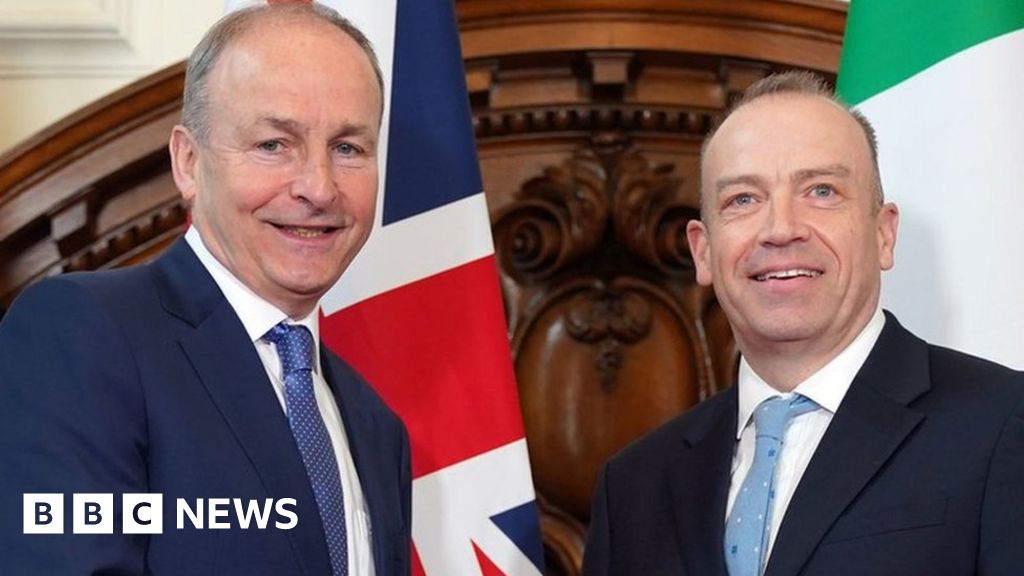- Written by Jayne McCormack
- BBC News NI Political Correspondent
The Tánaiste (Ireland's Deputy Prime Minister) Michael Martin has denied there is a dispute between Ireland and the UK over asylum seeker policy.
This took place on Monday as ministers from both governments met in London as part of the British-Irish Intergovernmental Conference (BIIGC).
One of the main topics discussed was the issue of legacy law.
NI Secretary Chris Heaton-Harris and Lord Kane attended on behalf of the UK Government and Northern Ireland.
Martin was due to sit with Ireland's Justice Minister Helen McEntee, but the meeting was postponed after a meeting with British Home Secretary James Cleverley, also scheduled for Monday, was postponed to Sunday night. was absent. .
The BIIGC was established under the Good Friday Agreement to “promote bilateral co-operation at all levels on all issues of mutual interest within the remit of the British and Irish Governments”. .
This was the first BIIGC since electricity sharing returned to Stormont.
During the meeting, Ministers discussed and welcomed the reinstatement of the Northern Ireland Executive, Parliament and the North-South Ministerial Council.
The two leaders also spoke about the current security situation, including the lowering of the threat level in Northern Ireland to “substantial” in March.
legacy crash
From Wednesday, inquests into previously inconclusive Troubles-related murders will conclude.
The Irish government is suing the UK at the European Court of Human Rights in Strasbourg.
“Full cooperation”
Regarding the Omagh investigation, Tánaiste Micheál Martin said: “I do not want to hold anything back in terms of co-operating with Lord Turnbull and I would like to co-operate as fully as possible with that investigation, victims.”Our ultimate aim is: It's about doing right by the victim. ”
The Independent Commission for Reconciliation and Information Recovery (ICRIR) was also established.
The new organization's aim is to help families learn more about how their loved ones were killed or seriously injured.
Lord Cain, who has been working on reforming the legacy law, said on Monday: “I completely reject any suggestion that this is about cover-up, because the new agency will [ICRIR] They will have access to far more national records than have been available to such institutions in the past. ”
“We want to provide as many answers as possible,” he said.
“There are going to be some difficult things for the British government and the British state. Similarly, there are going to be some difficult things for paramilitary groups and ex-paramilitary groups.”
The part of the law providing conditional immunity from prosecution for Troubles offenses was struck down by the High Court in Belfast in February.
Northern Ireland Secretary Chris Heaton-Harris previously said he was committed to implementing the legislation.
But immigration issues overshadowed Monday's BIIC.
The Irish government has announced an influx of asylum seekers from Northern Ireland who fear being sent to Rwanda.
It is preparing legislation that would allow people arriving in the UK to be sent back.
Heaton-Harris said the UK must deal with the European Union as a “whole body”.
After Monday's meeting, he said the Rwandan government's laws were “clearly acting as a deterrent and are already having some impact” and that Britain did not want to “upend” its relationship with Ireland. said.
But the Irish government said 80 per cent of recent arrivals to the Republic came from the UK across the Irish border, and Britain's Rwanda policy was having an impact on Ireland.
“Politics and various discussions are inevitable, but I would like to think that the relationship between our two countries is strong enough to deal with all of those issues,” Heaton-Harris said.


